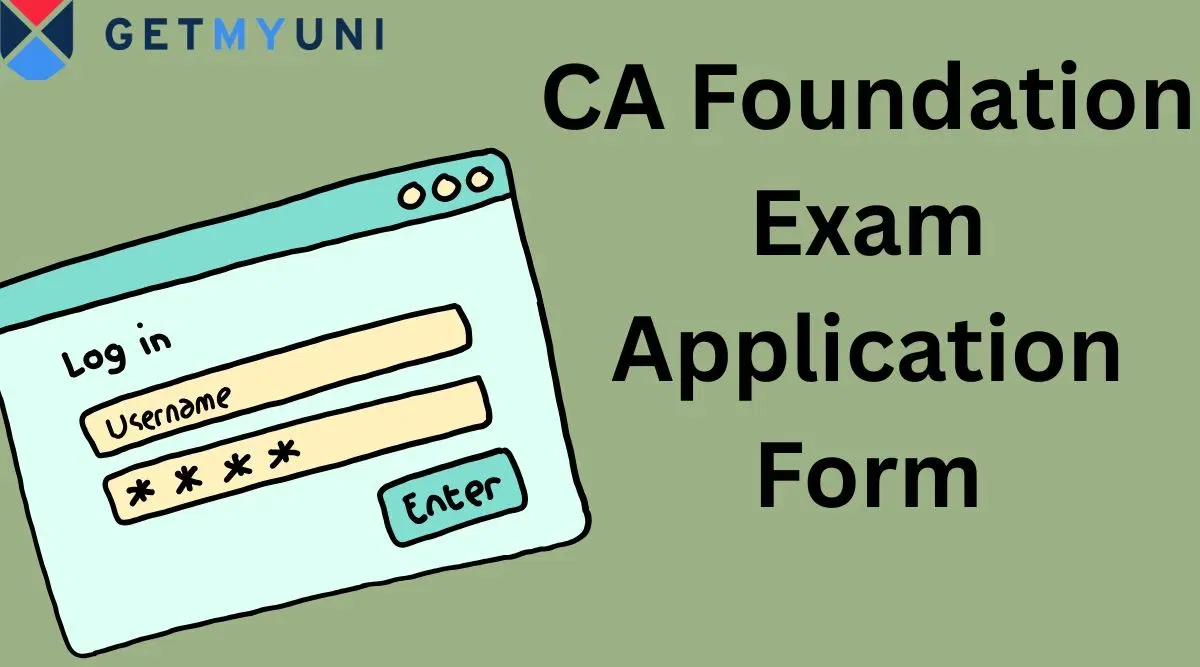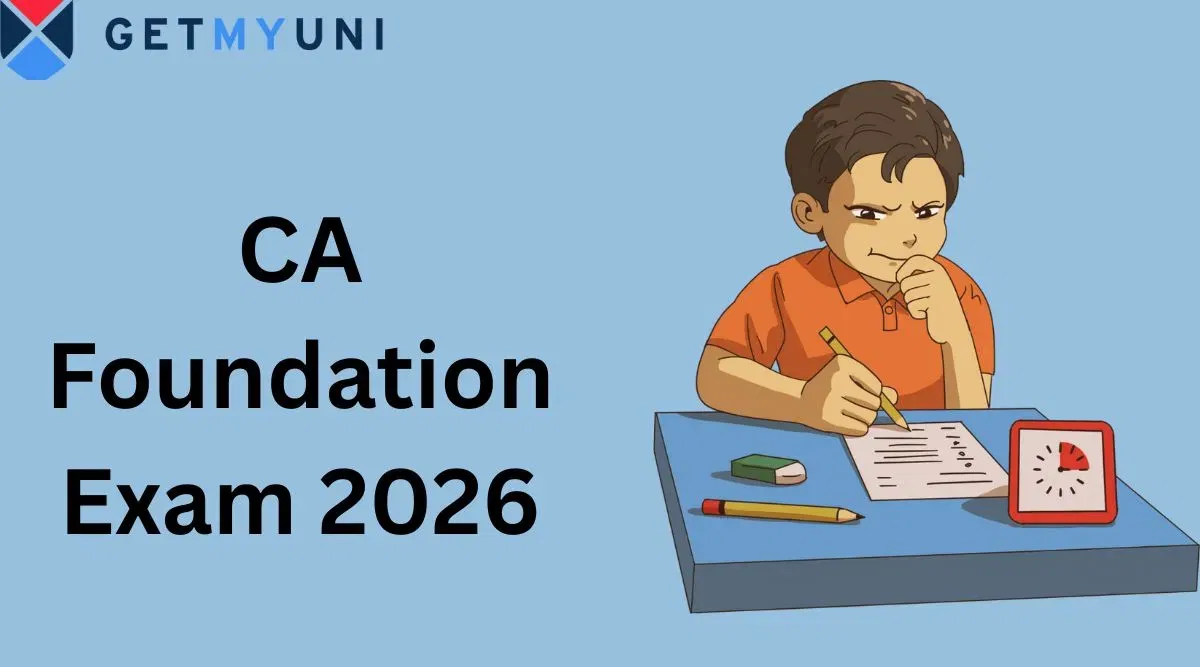Commerce Courses: Eligibility, Admission, Syllabus, Placements
Commerce is the study of the financial system, transactions, economy and its implementation and banking of the country and the globe. Commerce is one of the country's most sought-after streams, followed by Arts and Science. After completion of 12th grade, the best courses in commerce are BBA, B.Com, B.Com Banking, and Finance Management, to name a few.
Courses for commerce students are available in various fields of degree, they can obtain a certificate or diploma to undergraduate and postgraduate degrees and a PhD. The commerce course duration depends on the type of degree a candidate wishes to pursue, it can range from a year to up to five years.
Table of Contents
- Course List
- Eligibility For Commerce Courses
- Admission
- Entrance Exam
- Top 10 Commerce Courses in Demand
- Subject And Syllabus
- Top 10 Commerce Colleges In India
- Commerce Courses Jobs And Salaries
- Scope Of Commerce Course In India
- Top Recruiters
- Skills Required in Commerce Courses
Commerce Courses List
Commerce is a professional subject that focuses on the financial and economic aspects of the nation and also the global economy. The commerce course list has professional courses in commerce, diploma courses in commerce to commerce degree courses.
The candidate can choose courses based on their aptitude, qualification and interest. The majority of commerce courses are entrance exam-based, so candidates who decide to pursue them should be aware of this fact.
Depending on the course's nature, a commerce course can last anywhere between three and five years. Candidates can choose from a variety of course types by browsing the list of commerce courses offered throughout the nation, which is divided into the following categories with the commerce course details:
- Undergraduate Courses
- Postgraduate Courses
- Diploma/PG Diploma Courses
- Certification Courses
- Doctorate Courses
Undergraduate Commerce Courses
A full-time undergraduate course is generally a three-year-long course. The course imparts students with knowledge of the financial system and sector of the country in fields such as banking, stock market, economy, money min, import and export and many more.
The commerce integrated courses are another popular degree course which usually takes up to five years. Here are some of the best courses in commerce after graduation:
- B.Com
- B.Com (Honours)
- B.Com Banking Management
- B.Com Cooperation
- B.Com Computer Science
- B.Com Economics
- B.Com Finance
- B.Com Taxation
- B.Com Computer Applications
- B.Com Accountancy
- B.Com Banking and Insurance
- B.Com Accounting and Finance
- B.Com Corporate Secretaryship
- B.Ed Commerce
- B.Com Marketing
Postgraduate Commerce Courses
Courses after graduation in commerce are usually post-graduation. Commerce PG courses are a two-year long course where students are provided with advanced knowledge and practical skills on the development of financial systems along with familiarising them with new technologies in banking, minting and stock markets. Here are commerce pg courses one can pursue after graduation:
- M.Com
- M.Com in Finance
- M.Com in Computer Application
- M.Com in Business Management
- M.Phil in Commerce
- M.Com Honours
- M.Com in Banking
- M.Com in Financial Management
- M.Com in Marketing
- M.Com in Taxation
- M.Com in Accounting
Diploma/PG Diploma Commerce Courses
Diploma Courses in Commerce are offered in a wide range of subjects and specialisations. There are diplomas in commerce courses after 10th for candidates who wish to grasp the fundamentals of the commerce stream. Postgraduate diploma courses also fall under courses after graduation in commerce. This can help them boost their knowledge of finance, economy and market. Here are some diploma courses in commerce:
- Diploma in Finance and Banking
- Diploma in Accounting and Finance
- Diploma in Taxation
- Diploma in DIC
- PG Diploma in Banking and Finance
- PG Diploma in Diploma in Statistics
- PG Diploma in Diploma in Accounts
- PG Diploma in Diploma in Bank Management
Commerce Certification Courses
There are many commerce certification courses that can also be pursued by the students. These commerce certificate courses aim to introduce students to all the vital and key concepts that industry leaders consider to be important.
When enrolled in certificate courses, students are able to experience the commerce course benefits as these certifications give the students a taste of all the important concepts.
Given below are some of the top commerce stream courses that can be pursued in the form of certifications.
- Certificate course in Finance Accounting and Taxation
- Certificate in Public Relations
- Certificate course in E-Commerce
- Certificate in Accounting
- Certificate in Banking
- Certificate in Indian Stock Market
Doctorate Commerce Courses
The doctorate degree is purely based on the research work the candidate has done in the field of their specialisation. Commerce graduates have the option of working in many fields to perform research work on the basis of their choice of specialisation. They can even combine courses such as BA, BBA & B.Sc to perform research.
- PhD Commerce
- PhD in Statistics
- PhD in Finance
- PhD in Taxation
- PhD in Banking
Eligibility For Commerce Courses
Commerce course eligibility is based on the entrance exam the candidate has to sit in order to enrol in the college of their choice. The eligibility for commerce courses in India is candidates must clear all the eligibility requirements set by the council. Let's take a quick look at the eligibility criteria according to degrees:
- Diploma: For a candidate wishing to pursue a diploma, they can either enrol in the commerce course after 12th. They must secure 45% in the 12th graduate to be qualified to pursue Diploma courses in commerce.
- Certificate: The certificate courses have the same eligibility as a diploma. The candidate should’ve passed at least 12th grade with a 45% minimum aggregate. For working professionals too, the criteria are the same.
- Undergraduate: Students must sit for entrance examinations conducted by the centre, state or university to qualify for commerce. Apart from this, they should meet the qualifying requirements set by the universities and colleges.
- Postgraduate: A candidate wishing for a postgraduate program must have performed well in the undergraduate course. They must also qualify the entrance examination to be able to pursue a PG course.
- Doctorate: Students must qualify for the national entrance examination to be able to sit for a PhD course. They also should be able to secure a minimum of 50% in their postgraduate course.
Commerce Courses Admission
Entrance exams or selection based on merit are two ways to get commerce course admission. Candidates for the commerce degree may be asked by the universities they have chosen or chosen for them to submit their results from the relevant entrance exam boards. Students have access to both offline and online admissions applications.
Students must go to the colleges' official websites to learn more about the online application process. They would have to go in person to the college's admission office for offline methods.
Commerce Courses Entrance Exam
The final merit list of applicants selected for admission to colleges is heavily influenced by entrance exams. Colleges use entrance exams as a screening tool to assess whether applicants are a good fit for the programme.
These tests are given at the college, state, and federal levels. Thus, before enrolling, students must conduct a thorough investigation of the appropriate exam.
The list of top tests for entry into different Indian commerce programmes is provided below.
Top 10 Commerce Courses in Demand
Choosing a specific field can be difficult because commerce courses can cover a wide range of topics. The main objective of commerce courses is to familiarise students with commerce, policies, articles and impart them with the knowledge of legal actions.
All commerce courses are regarded as lucrative fields for school graduates to study because candidates can anticipate finding a well-paying job in both the public and private sectors after graduation.
Let's examine the top ten categories of commerce courses:
|
Course |
Duration |
|
3 Years |
|
|
5 Years |
|
|
1 Year |
|
|
3 Years |
|
|
3 Years |
|
|
3 Years |
|
|
3 Years |
|
|
3 Years |
|
|
3 Years |
|
|
3 Years |
Commerce Course Syllabus and Subjects
The best commerce courses in India aim to ensure that the students have access to all the vital and industry-relevant information. The commerce course subjects that the students would study depend on the type of course that the students are applying for.
The top 10 commerce courses in India are a mix of undergraduate, postgraduate, diploma and doctorate courses. Hence, the students need not worry about the stage of education they are pursuing as they would always receive a quality education.
Given below are some of the generic topics that the students may be taught during their Commerce course education:
- Business Law
- Corporate Social Responsibility
- Organisational Behaviour
- Accounting in Business
- Fundamentals of Business
Top Commerce Colleges in India
The commerce course fees in India are not fixed. The fee structure depends on many variables such as the type of course, the location of the college if the college is private college or public and more. Students must ensure that they do proper research when choosing which college to study in as it can affect the standard of the education they are willing to accept.
Given below are the top colleges along with their Commerce course fees in India:
|
SI.No |
College Name |
Fees (INR) |
|
1 |
10,000 |
|
|
2 |
1 Lakhs |
|
|
3 |
1 Lakhs |
|
|
4 |
25,000 |
|
|
5 |
10,000 |
|
|
6 |
2 Lakhs |
|
|
7 |
2 Lakhs |
|
|
8 |
2 Lakhs |
|
|
9 |
2 Lakhs |
|
|
10 |
3 Lakhs |
Commerce Course Jobs and Salaries
When pursuing the commerce course students need not worry about the scope and career opportunities provided by the colleges. There are plenty of Commerce course jobs available to the students owing to the relevance and diversity of the education that the students receive.
There exist both undergraduate and postgraduate commerce courses with a high salary scope. The curriculum is designed keeping the demands of the industry in mind. Listed below are some of the popular job roles along with their average salaries:
|
Job Role |
Average Salary (INR) |
|
Accounting Clerk |
3.5 LPA |
|
Accountant |
3 LPA |
|
Sales Executive |
2.5 LPA |
|
Sales Manager |
3.5 LPA |
|
Bookkeeper |
4 LPA |
|
Loan Counsellor |
3 LPA |
|
Securities Analyst |
3.5 LPA |
|
Cashier |
2.5 LPA |
|
Bank Manager |
3 LPA |
|
Lecturer |
5 LPA |
Scope of Commerce Course in India
The scope of Commerce courses in India is very high and rewarding. A candidate who has graduated or completed any Commerce course can expect to earn INR 3 lakhs annually as a fresher. Students choosing Commerce as their field of study can opt for careers such as Business Executive, Accountant, HR Manager, Data Analyst, Marketing Manager, Investment Banker, Wealth Manager, Project Manager, Research and Development Manager, etc.
Top Recruiters
Commerce courses in India provide students with ample job opportunities with a very bright future. Listed below are some of the top recruiters in India.
- Accenture
- Wipro
- Capgemini
- Cognizant
- TCS
- Amazon
- Genpact
- Flipkart
- Ernst & Young
- Deloitte
Skills Required in Commerce Courses
Owing to the relevance of the education, the students have access to all the Skills Required in Commerce Courses and hence they have a promising scope for themselves.
- Good knowledge of MS Excel
- Basic knowledge of taxes
- Financial analysis
- Communication skills
- Problem-solving skills
Browse Commerce Courses
Browse Commerce Courses
- ALL
- Diploma
- Bachelors
- Masters
- Doctorate
- Certificate
- Postgraduate Diploma
- Average fee₹5K - 1 LPA
- Duration3 Years
- Average fee₹1 LPA
- Duration2 Years
- Average feeINR 1,000-3,00,000 Per Year
- Duration3 Years
- Average fee₹5K - 2 LPA
- Duration2 Years
- Average fee₹17K - 25K PA
- Duration3 Years
- Average fee₹75K - 2 LPA
- Duration3 Years
- Average fee₹12K - 1 LPA
- Duration3 Years
- Average fee₹14K - 10 LPA
- Duration3 Years
- Average fee₹50K - 1.5 LPA
- Duration3 Years
- Average fee₹3K - 1 LPA
- Duration3 Years
- Average fee₹10K - 1.5 LPA
- Duration3 Years
- Average fee₹1 LPA
- Duration3 Years
- Average fee₹5K - 70K PA
- Duration3 Years
- Average fee₹5K - 1 LPA
- Duration3 Years
- Average fee₹50K - 2 LPA
- Duration3 Years
- Average fee₹5K - 70K PA
- Duration3 Years
- Average fee₹5K - 2 LPA
- Duration3 Years
- Average fee₹50K - 3 LPA
- Duration3 Years
- Average fee₹30K - 2 LPA
- Duration3 Years
- Average fee₹5K - 80K PA
- Duration3 Years
- Average fee₹4K - 12K PA
- Duration1 Year
- Average fee₹8K - 1.2 LPA
- Duration2 Years
- Average fee₹1 - 3 LPA
- Duration1 Year6 Months
- Average feeINR 16,000-1,00,000 Per Year
- Duration3 Years
- Average fee₹10K - 40K PA
- Duration1 Year
- Average fee₹20K - 2 LPA
- Duration3 Years
- Average fee₹50K - 1 LPA
- Duration1 Year
- Duration3 Years
- Average fee₹5K - 70K PA
- Duration3 Years
- Average fee₹1 LPA
- Duration3 Years
Latest Commerce Articles

Loading...









